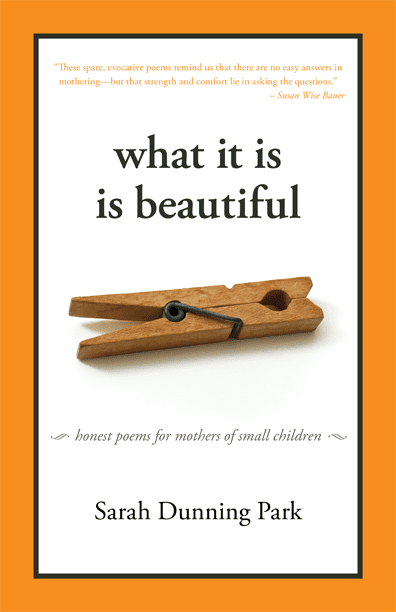I sat awkwardly bent forward in a thick oak chair, bulky in a sweater and snow boots, pages of poems spread on my lap. Every time I entered my professor’s office that first year of grad school, I couldn’t help but be intimidated by Mary’s wit, her loud opinions, and her short pencil skirt with snappy lace up boots. The day I learned about Gerard Manley Hopkins we’d been discussing my poetry and my tendency to write about God in a way that was too simplistic, too inauthentic to include nonbelieving readers.
Though her presence still makes my palms sweat, Mary was and remains my writing hero, a woman whose poetry has so much power it’s a stinger that zips into you and leaves before you notice there’s a lingering burn. She’s also a Christian, having converted late in life, who is committed to prayer and her Catholic faith. When she spoke, I listened.
Her challenge to me that day was simple: You can’t just write about light without recognizing darkness. You can’t lift up your faith without approaching your doubt. They co-exist in life; they need to co-exist in poetry.
She then began to quote Gerard Manley Hopkins from memory. “Carrion Comfort,” is a poem spoken by a believer who is overcome by his despair, who cannot seem to gain victory over his sin. It was a poem I’d never heard, by a poet I’d never read. And these were the lines I couldn’t shake out of my head:
“…ah, But O though terrible, why wouldst thou rude on me / Thy wring-world right foot rock? lay a lionlimb against me?”
We sat there discussing the weirdness of the image “lionlimb,” how creepy it is that it’s alone, unattached to a body. We discussed how the power of the poem is found in the speaker’s willingness to confront the darkness in an honest, vulnerable way. I was impressed by the images of the poem, but more fascinated by the rhythm. Who writes: “wring-world right foot rock”? All those one syllable words bouncing on top of each other, almost childlike, while the subject matter is dark and difficult.
I left Mary’s office with a resolve to learn whatever I could from Hopkins, who was a priest in the 19th century, writing poems for himself and occasionally sending them off to friends. I needed to find out if he always did that with rhythm and learn how he was able to write about Christ and still be a poet that my bohemian poet friends loved.
Hopkins became my kindred poet because there is never a time I read my favorite of his poems and am not moved. His “sprung rhythm” (as he termed it) is challenging to this girl who cannot naturally tighten words into a coil. And his poems teach me to see our God in the midst of darkness. Hopkins is never faking anything. But God always remains the hero of the story, despite the pain.
So, if you haven’t noticed, Hopkins has given us a new poem to memorize, Mamas. It’s called “Pied Beauty” and it’s a perfect celebration of God’s goodness in nature. So, let’s stick these words in our heads and find joy in the long, sunny days ahead, the flowers popping out of the dirt, and the eminent arrival of Easter: our celebration of light defeating darkness, our going to bed in Winter and waking to Spring.











